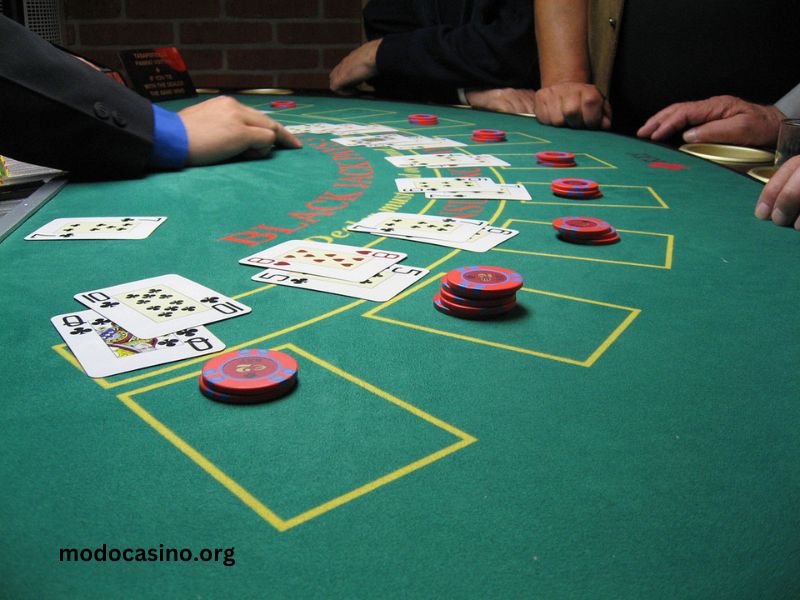Casinos are intricate environments where mathematics, psychology, and chance intersect to create an experience designed to entertain and, ultimately, generate revenue. From the spinning wheels of roulette to the glitzy slot machines, each aspect of a casino’s operation involves complex calculations. In this article, we will delve into various aspects of casino mathematics, including house edge, odds, payout structures, and more.
1. House Edge
The house edge is a fundamental concept in casino games that determines the average profit the casino expects to make from each bet. It represents the percentage of each wager that the casino expects to keep over the long run. This figure is crucial for understanding the profitability of different games and betting strategies.
- Roulette: In European roulette, the house edge is 2.63%, while in American roulette, which includes an additional double zero (00), it increases to 5.26%. This higher house edge in American roulette is due to the increased number of losing outcomes.
- Blackjack: The house edge in blackjack varies based on the rules of the game and the player’s strategy. With basic strategy, the house edge is typically around 0.5%. However, this can be reduced even further with card counting techniques.
- Slots: Slot machines have a house edge that can vary widely depending on the machine. Generally, the house edge on slots ranges from 2% to 10%. The exact figure is influenced by the machine’s payout structure and frequency of payouts.
2. Odds and Probabilities
Odds and probabilities are central to casino games, influencing both player decisions and casino strategies. Understanding these metrics helps players gauge their chances of winning and making informed decisions.
- Poker: In poker, players need to calculate pot odds and implied odds to make strategic decisions. Pot odds are the ratio of the current size of the pot to the cost of a contemplated call. Implied odds consider future bets that might be won if the hand improves.
- Craps: Craps involves a variety of bets with different odds. For example, a pass line bet in craps has a house edge of 1.41%, while a bet on the field has a higher house edge, often around 5.56%. Understanding the odds associated with each bet helps players make better choices.
- Baccarat: Baccarat is known for its relatively straightforward odds. The house edge for the banker bet is approximately 1.06%, while the player bet has a house edge of 1.24%. The tie bet, however, has a much higher house edge of around 14.36%.
3. Payout Structures
Payout structures dictate how much players can win relative to their bets. Casinos design these structures to ensure profitability while providing attractive prizes to players.
- Slot Machines: Slot machines often feature various payout structures, including fixed payouts, progressive jackpots, and bonus rounds. The payout percentage, or Return to Player (RTP), indicates the proportion of wagered money that the machine returns to players over time. For example, a slot machine with an RTP of 95% returns $95 for every $100 wagered on average.
- Video Poker: Video poker games, such as Jacks or Better, offer a variety of payout structures based on the specific hand rankings. For instance, a full house might pay 9 to 1, while a flush pays 6 to 1. The payout table is crucial for determining the overall profitability of the game.
- Table Games: In table games like roulette and blackjack, payout structures vary based on the type of bet. For example, a straight bet in roulette pays 35 to 1, while a blackjack payout is typically 3 to 2. These payout ratios affect the overall house edge and game strategy.
4. Variance and Volatility
Variance and volatility are terms used to describe the fluctuations in outcomes that players can expect. These concepts are essential for understanding how often and how much a player can win or lose over time.
- High Variance Games: Games with high variance, such as certain slot machines, offer the potential for large payouts but also come with a higher risk of losing streaks. Players may experience long periods without significant wins before hitting a big jackpot.
- Low Variance Games: Low variance games, like certain table games, offer more frequent but smaller wins. While the potential for massive payouts is lower, players are more likely to experience consistent, smaller returns.
5. Comps and Loyalty Programs
Casinos often offer comps (complimentary services) and loyalty programs to reward players and encourage continued play. These programs are calculated based on a player’s activity and spending.
- Comps: Comps can include free drinks, meals, or hotel stays. The value of these comps is typically calculated based on the player’s level of play, including factors like average bet size, time spent playing, and overall spend.
- Loyalty Programs: Loyalty programs often involve tiered levels, where players earn points based on their gambling activity. These points can be redeemed for various rewards, including cash back, free play, or merchandise. The structure of these programs is carefully designed to incentivize players to continue gambling.
6. Algorithmic Betting Systems
Some players use algorithmic betting systems to try to gain an edge in casino games. These systems involve mathematical models and statistical analyses to predict outcomes and optimize betting strategies.
- Martingale System: The Martingale system is a betting strategy where players double their bet after each loss, aiming to recover previous losses with a single win. While theoretically sound, it requires a substantial bankroll and is limited by table limits.
- Card Counting: In blackjack, card counting involves keeping track of the ratio of high to low cards remaining in the deck to make more informed betting decisions. Successful card counting can reduce the house edge but requires significant skill and practice.
- Roulette Systems: Various roulette betting systems, such as the Fibonacci sequence or the D’Alembert system, involve adjusting bets based on previous outcomes. These systems aim to manage risk and maximize returns, but none can overcome the house edge.
7. Random Number Generators (RNGs)
In modern casinos, especially online ones, Random Number Generators (RNGs) play a crucial role in ensuring fair play. RNGs generate random outcomes for games such as slots, roulette, and card games.
- Slot Machines: RNGs determine the outcome of each spin on a slot machine. The RNG ensures that each spin is independent and random, providing a fair chance of winning based on the machine’s payout structure.
- Online Casino Games: For online table games and video poker, RNGs simulate random card draws and dice rolls, ensuring that the outcomes are unbiased and fair.
8. Mathematical Models and Game Design
Casino game designers use mathematical models to create engaging and profitable games. These models consider factors such as house edge, payout structures, and player behavior.
- Game Mechanics: Game mechanics, such as the probability of hitting a specific combination or the frequency of bonus features, are carefully calculated to balance player enjoyment and casino profitability.
- Player Psychology: Mathematical models also account for player psychology, designing games to be visually appealing and rewarding while maintaining a favorable house edge.
Conclusion
Casinos are a fascinating blend of mathematics, psychology, and entertainment. From calculating the house edge to designing payout structures and implementing RNGs, every aspect of a casino is carefully calculated to create an engaging experience while ensuring profitability. Understanding these calculations can enhance your gaming experience, whether you’re a casual player or a serious gambler. So the next time you step into a casino, remember that behind the flashing lights and the thrill of the games, there’s a complex web of calculations at work.




